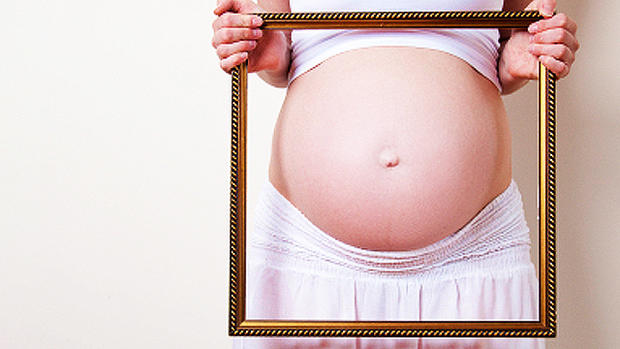Study of antidepressants in pregnant women finds more risks than benefits
Commonly-prescribed SSRI antidepressants should be given to pregnant women with "great caution" because the drugs could raise risk for miscarriage, premature birth and health problems in both mom and a newborn baby, a new study concludes.
For the study, published in the Oct. 31 issue of Human Reproduction, researchers from several Boston-area hospitals reviewed previously published studies that examined women with depression who took antidepressants while pregnant.
"There are three main points that stand out from our review of the scientific studies on this topic," study author Dr. Adam Urato, chairman of obstetrics and gynecology at MetroWest Medical Center and a maternal-fetal medicine specialist at Tufts Medical Center, said in a press release. "First, there is clear and concerning evidence of risk with the use of the SSRI antidepressants by pregnant women, evidence that these drugs lead to worsened pregnancy outcomes. Second, there is no evidence of benefit, no evidence that these drugs lead to better outcomes for moms and babies. And third, we feel strongly that patients, obstetrical providers, and the public need to be fully aware of this information."
- Popular antidepressants may raise stroke risk
- APA urges psychotherapy as depression treatment before pills
- Kids of moms who had postpartum depression more likely to be short
Selective serotonin reuptake inhibitors, or SSRIs, are a popular type of antidepressants that block the reuptake of a brain chemical serotonin, which affects mood and emotional response. Such drugs include Prozac, Zoloft, Paxil and Lexapro.
According to the researchers, antidepressant use has increased 400 percent over the past 20 years, making the drugs the most commonly prescribed medication in the U.S. for people between 18 and 44 years of age -- the childbearing age range for most women.
The researchers found in their review that many studies showed SSRIs were no more effective, or slightly more effective, than placebo pills for treating depression in pregnant women. Other evidence suggested SSRIs may make it more difficult to get pregnant for women taking fertility treatments.
They review also found evidence of health risks for pregnant women taking antidepressants including an increase in miscarriage and two potentially dangerous conditions, pregnancy-induced hypertension and preeclampsia, especially if use extends beyond the first trimester.
Premature birth was the "most pressing" obstetrical complication in more than 30 studies researchers reviewed. Urato said, "This is a significant finding because we know that babies born before 37 weeks are at risk for many short and long-term health problems."
There was also a "strong signal" of birth abnormalities, most notably between the antidepressant Paxil and heart defects in newborns. In 2005, the FDA asked GlaxoSmithKline to change Paxil's risk factor to demonstrate risk to the fetus, and the Mayo Clinic says the drug is "generally discouraged" during pregnancy.
The review also reported evidence that long-term SSRI use was tied to increased cases of low birth weight and increased rates of respiratory distress in newborns.
The problems tied to antidepressants also were shown to extend through infancy. Infants exposed to antidepressants in the womb were found to be 30 percent more likely to have Newborn Behavioral Syndrome, a condition characterized by persistent crying, jitteriness and feeding difficulties and in rare cases, seizures and breathing problems. Another study in the review reported a doubling of risk for developing an autism spectrum disorder for moms who took antidepressants while pregnant, with the strongest effect seen in women who took the medication during the first trimester.
"There is enough evidence to strongly recommend that great caution be exercised before prescribing SSRI antidepressants to women who are pregnant or who are attempting to get pregnant, whether or not they are undergoing infertility treatment," study co-author Dr. Alice Domar, an OB/GYN at Beth Israel Deaconess Medical Center, said in the press release. "We want to stress that depressive symptoms should be taken seriously and should not go untreated prior to or during pregnancy, but there are other options out there that may be as effective, or more effective than SSRIs without all the attendant risks."
The researchers concluded that SSRI antidepressants should only be prescribed with great caution and with full counseling for women experiencing depression and trying to get pregnant.
Kimberly Yonkers, a professor of psychiatry and obstetrics and gynecology at Yale University who served on a 2009 panel tasked with creating depression treatment guidelines for pregnant women, told WebMD that the study's finding of "no evidence of benefit" for depressed pregnant women who take SSRIs is "nonsense."
"For many women with severe major depression, treatment with an antidepressant is not optional, just like treatment with insulin is not optional for a woman with (type 1) diabetes," she said. "To give these women the message that treatment is optional and that it doesn't work anyway does us all a disservice."
Other experts agreed.
"I would say the authors of this article went overboard in terms of their negativity," Gregory Moore, director of health services at Georgia Tech in Atlanta and a member of the American College of Obstetricians and Gynecologists' committee on ethics, told USA Today. "Depression can be a fatal disease."
Urato himself says the goal of his review was not to convince people to avoid antidepressants
"We're not saying women should not take SSRIs," he told HealthDay. "The goal is to give them information so they can make the right decision for them."
